CookSmart • Smart Planner • B2C
Empowering home cooks to reduce food waste with a smart meal planner
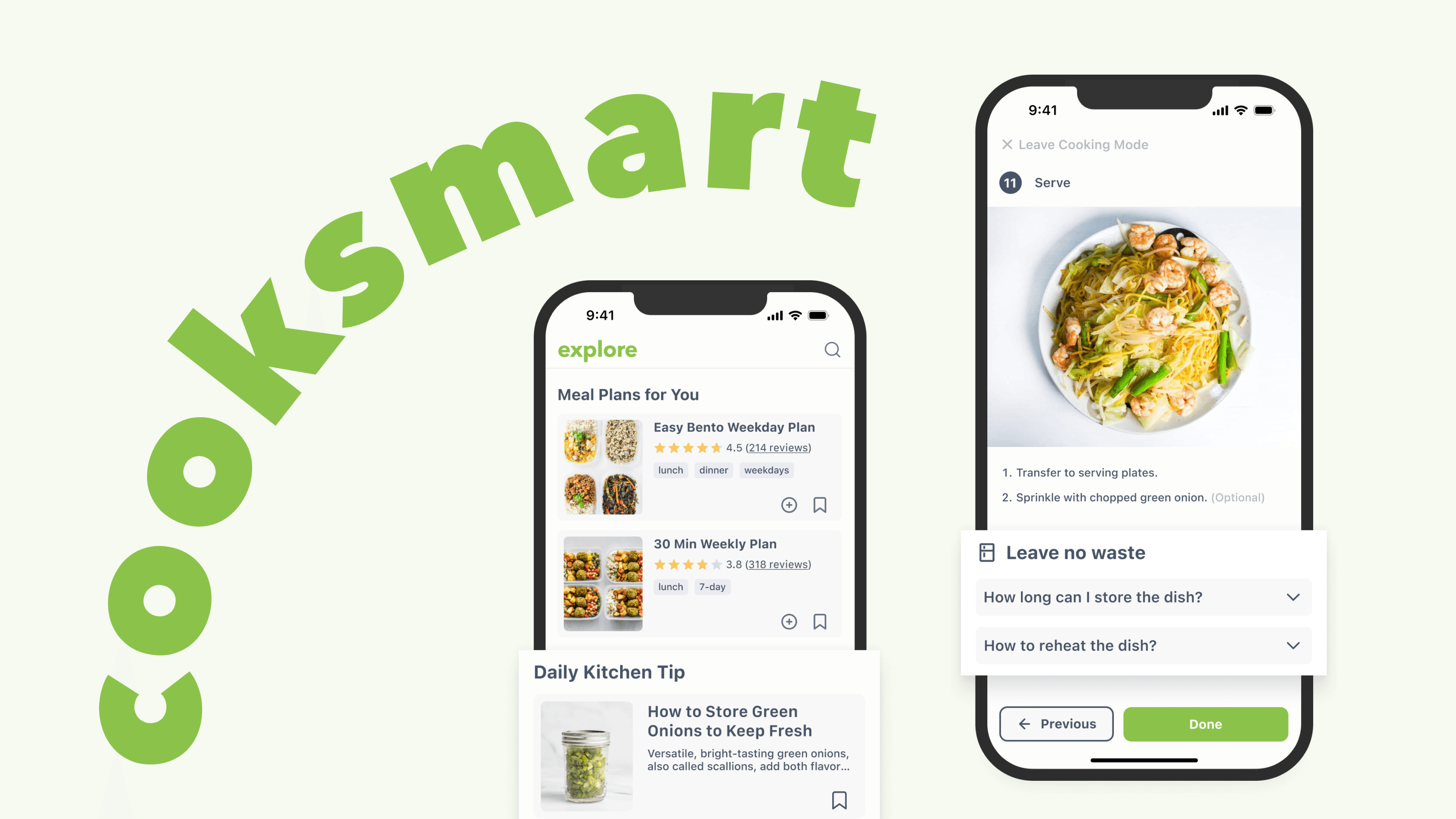
Objective
This project involved designing a mobile app to support end-to-end meal planning in a way that minimizes food waste and promotes a more sustainable cooking style.
Team
Individual
Advisor (Stakeholder)
Role
Product Design, UX Research
Tools
Figma, Qualtrics
Timeline
Feb – Nov 2023
Outcome
The metrics were measured during the usability study, where data on how successfully participants performed the tasks and their self-reported product usability were collected.
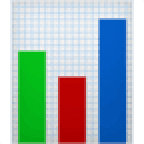
Scored 89th
in System Usability Scale
Scoring well above the average of 68th, CookSmart proved to be an useful tool.

97% User Success Rate in Formative Usability Study
The design is intuitive for new users to complete most tasks during usability study.
Background
Households have been the largest source of food waste.
When I was looking for my capstone project topic, I noticed although there were many talking about adopting a sustainable lifestyle, little of them talks about the severity of household food waste.
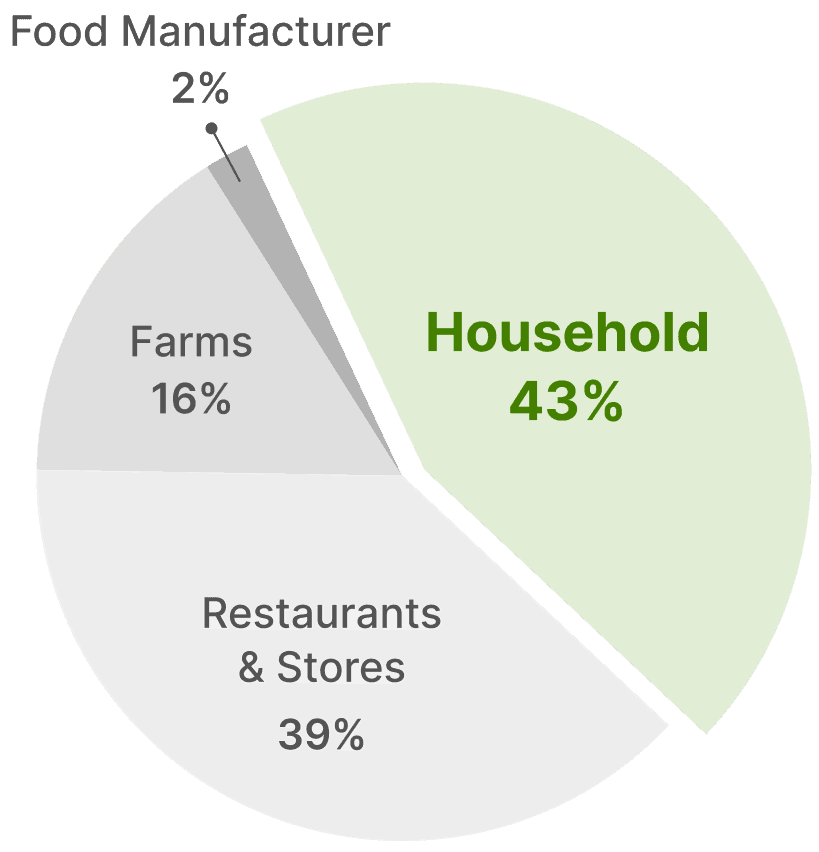
User Research
Discovered 3 major challenges from home cooks.
In the initial phase, a 30-minute user interview was conducted with 10 participants, to understand home cooks' pain points of meal planning and obstacles to reducing food wastes.
1. Challenges in following most recipe instructions and saving interesting recipes
Difficult to follow video recipe with dirty hands.
Fear of "not performing correctly" with text based recipe instructions.
2. Hard to balance between trying new recipes and reducing food waste
Faced challenge in wasting money from over purchasing.
Avoid trying new recipes that require buying unfamiliar ingredients.
3. Misconceptions of integrating sustainable practices into daily routines
Thought sustainable diet is restrictive and cost-ineffective.
Shared hesitation in being "sustainable", thinking great efforts are required to make an impact.
Problem space
How might we…
address the challenges home cooks face and implicitly promote sustainability altogether?
Approach
Define user goals based on research insights.
Based on the user research insights, I translated the needs and ideate goals that leverage home cooks' meal preparing experience and achieve an efficient and more sustainable cooking goal.
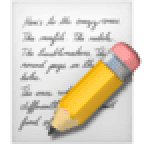
Buy ingredients precisely
Plan meals in advance to confidently know what groceries to purchase

Cook and store consciously
Store ingredients properly and cook accurate portions of food
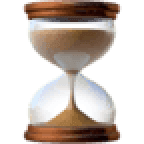
Spend less time deciding
Quickly decide what dishes to cook

Follow without hesitation
Have easy to follow cooking instructions
Explore solutions that integrates food waste reduction measures throughout the user journey.
According to user interviews, participants have misconceptions for "sustainable" and are hesitate to take their first step. Hence, one of the primary objectives is to provide measures that are approachable for people to take their initial move.
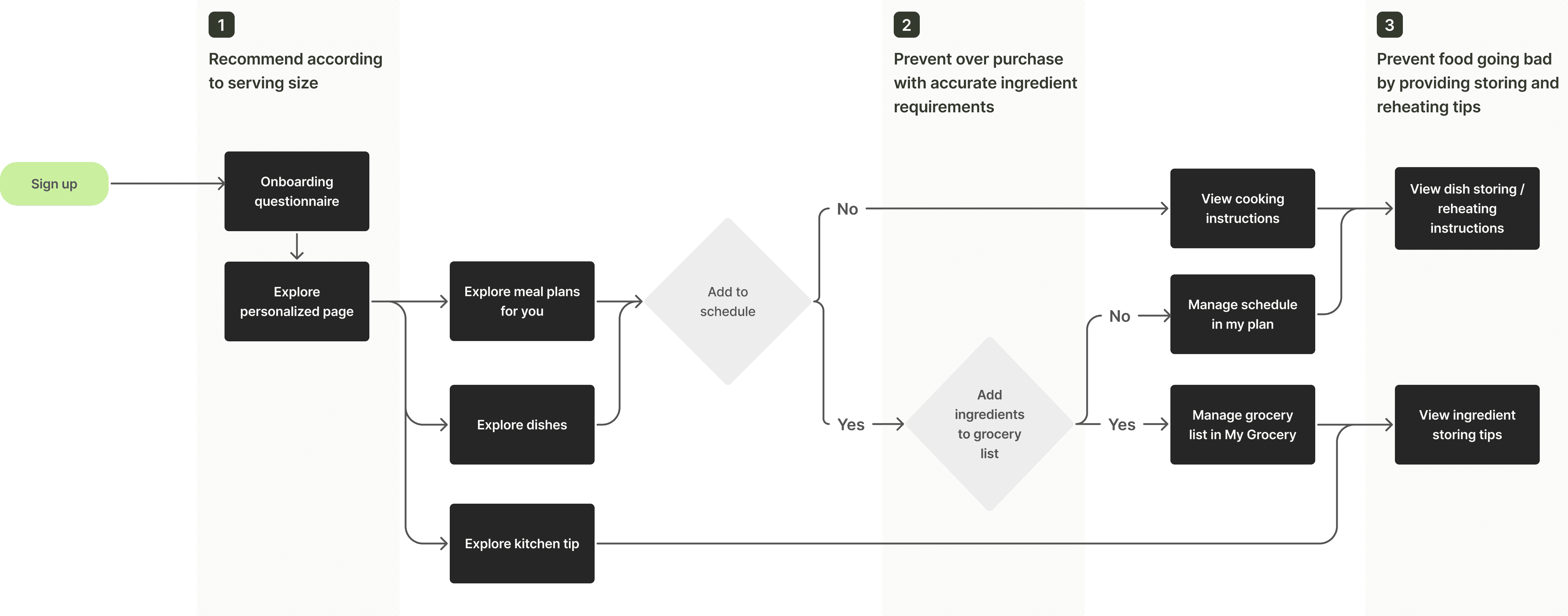
Design Solution
Sketches to prototype: Setting elements and brand voice
Minimum colors used, to keep the app clean and leet primary objects and images pop.
Set lime green as the primary color to convey a sense of freshness and nature to the app.
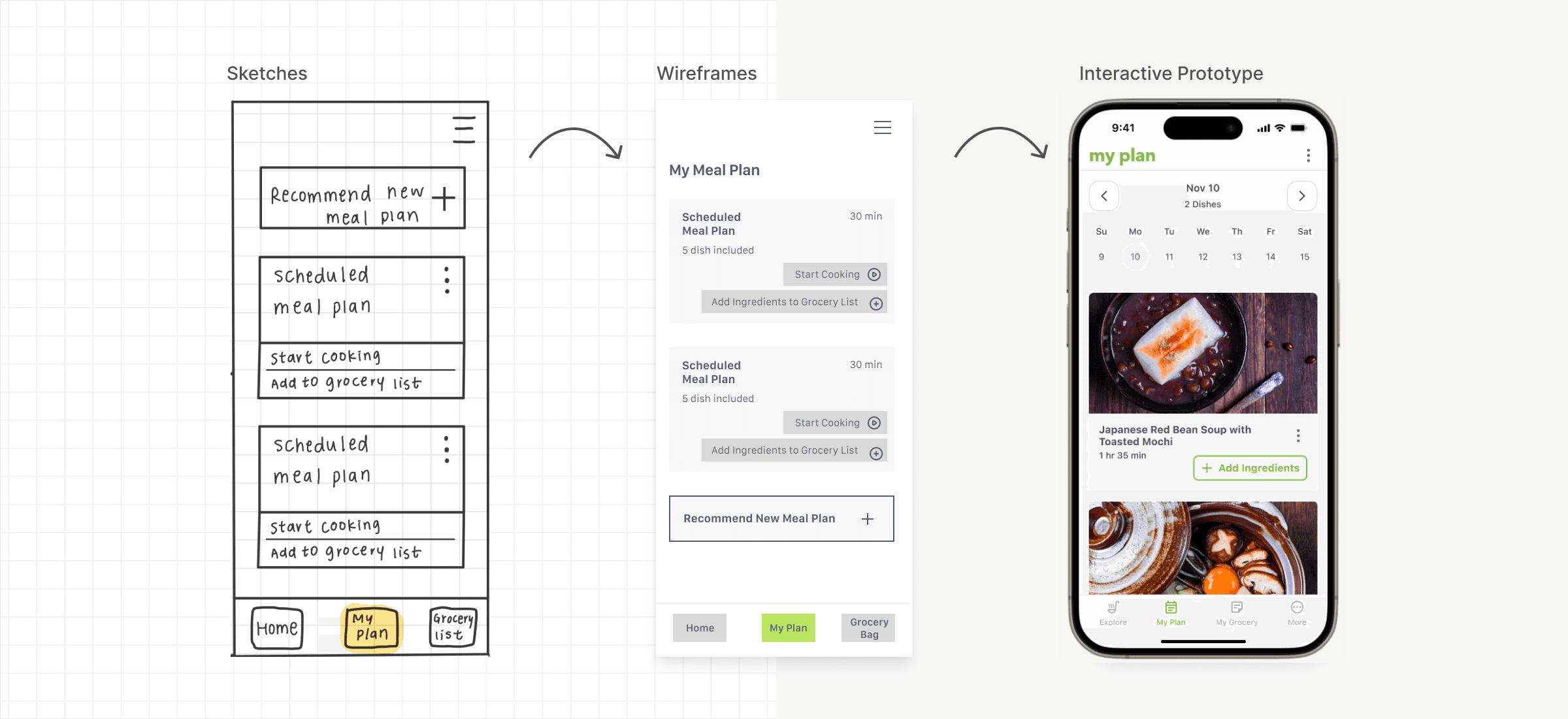
Usability Testing
Participants: With some minor adjustments, this would be such a helpful solution for me!
The testing goals were to to explore any underlying usability issues and understand how easy or difficult it was for the target user group to reach their goals within the mobile application design.
Solution 1: Reduce steps to complete task
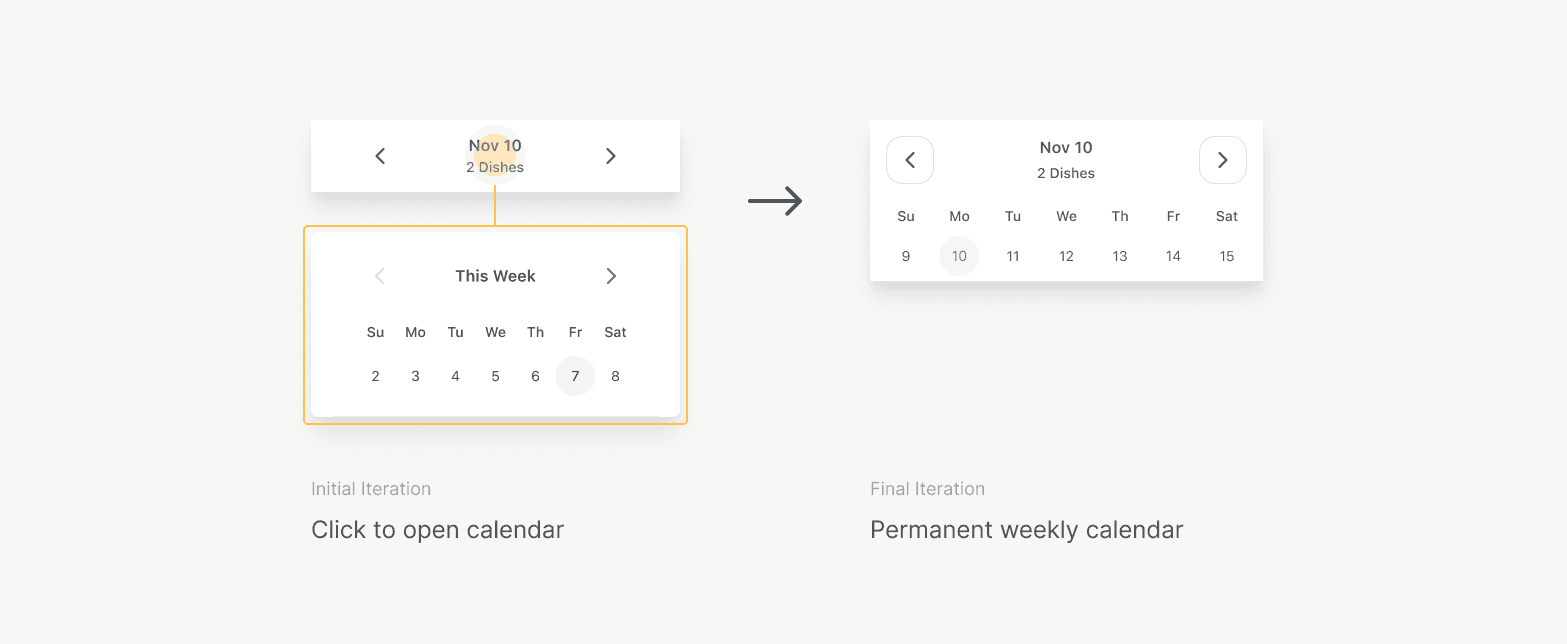
Solution 2: Include visual cues to reduce cognitive load
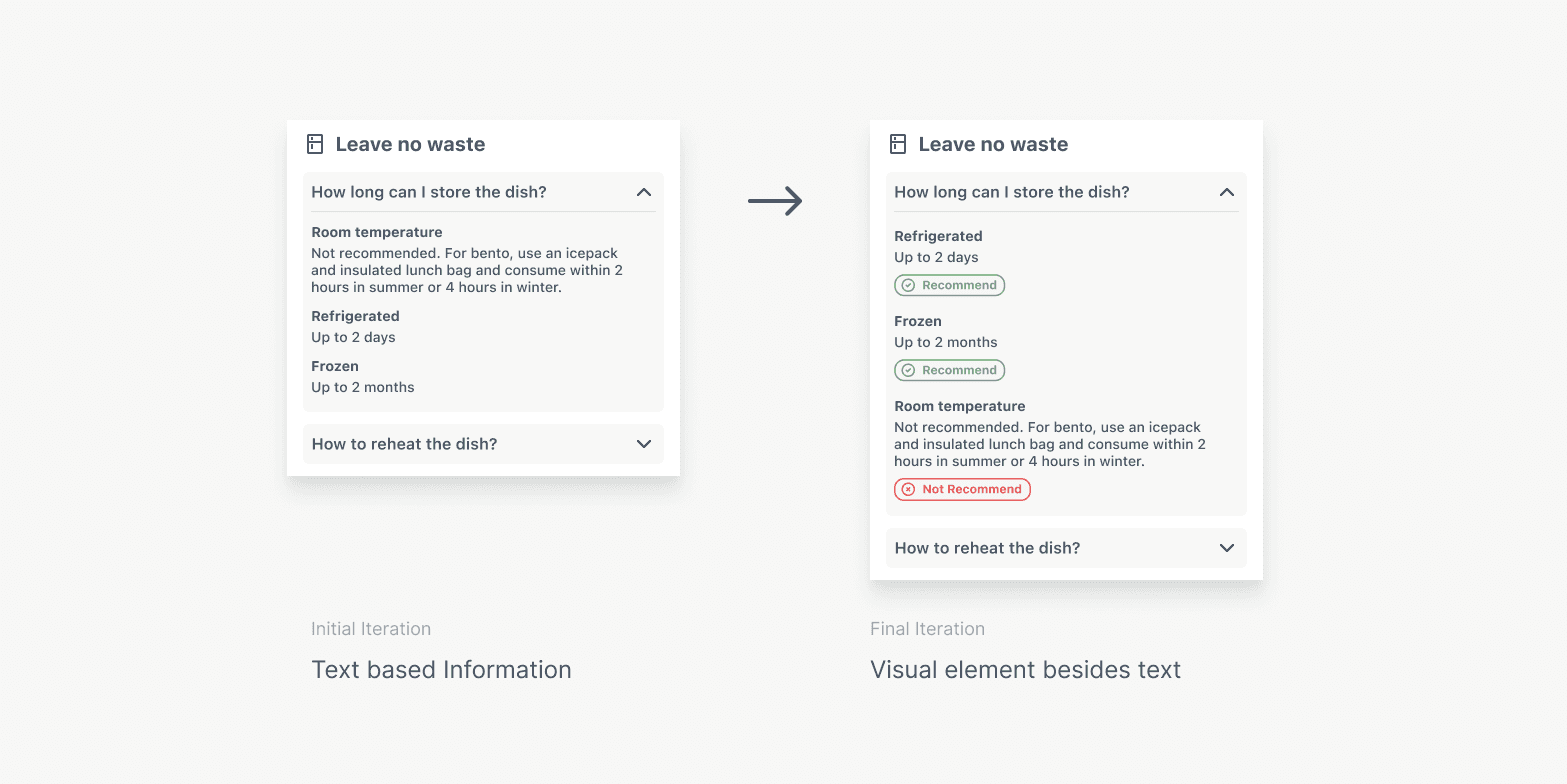
final design
Onboarding qustionniare
Have accurate portion of food prepared
Personalized content to browse based on preference
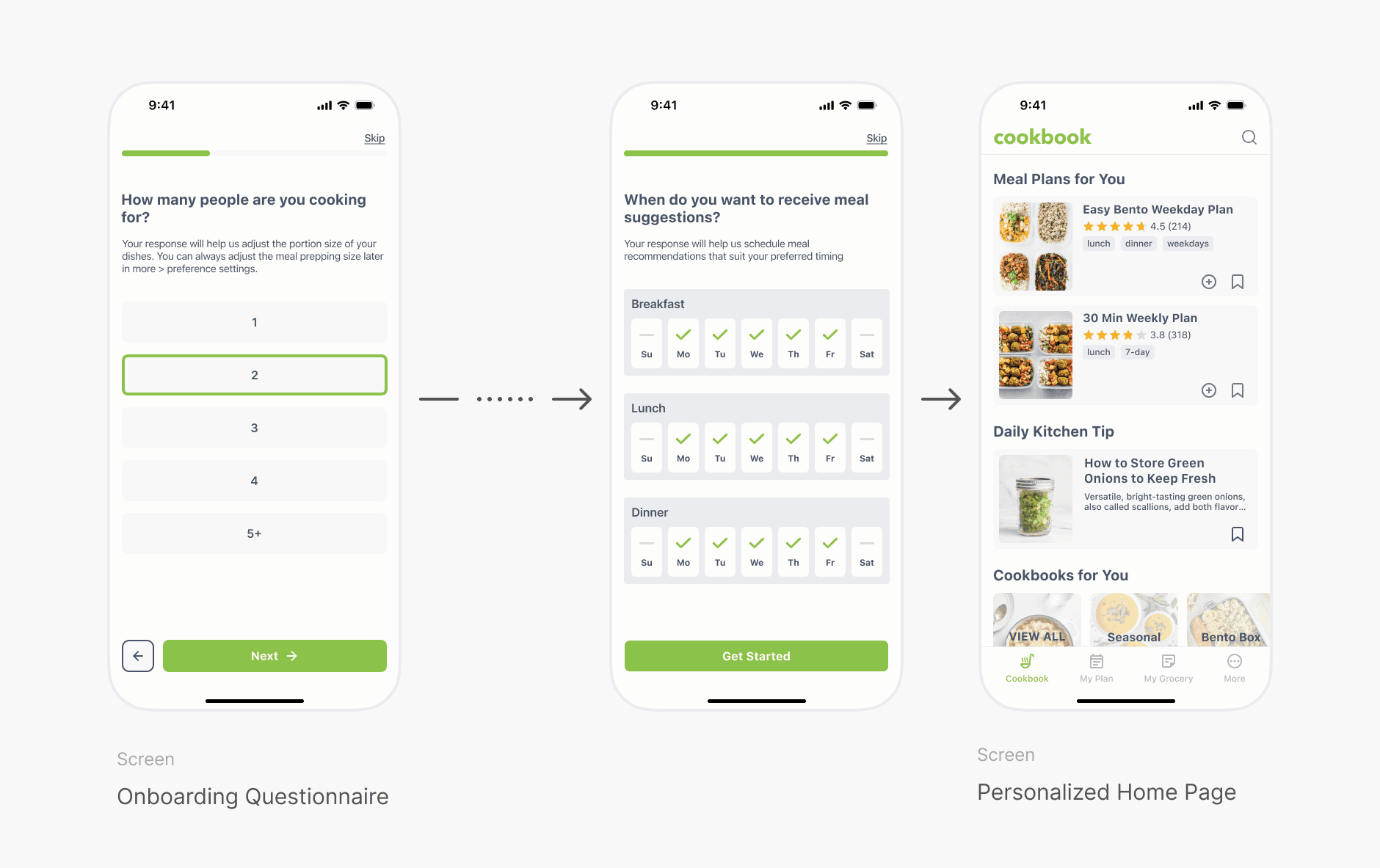
Smart recommend sustainable tips
Share tips to the user for learning more about extending ingredients shelf life
Smart recommend food storage tips and meal ideas based on user grocery list
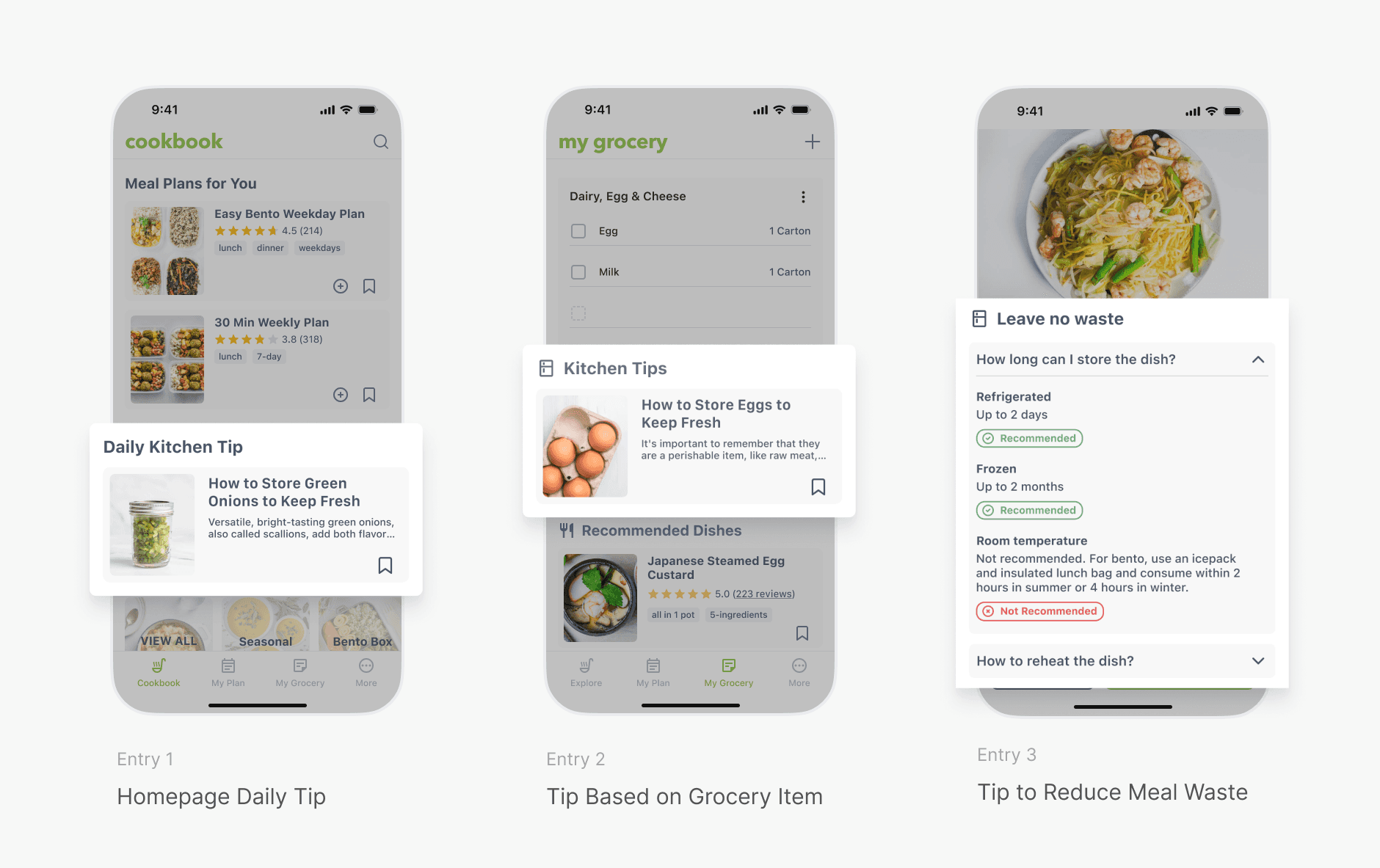
Different approach to plan meals
Pre-designed meal plans for planning efficiently
Smart search for a effective approach to desired item
Three recipe instruction modalities to best fit both planning and cooking scenarios
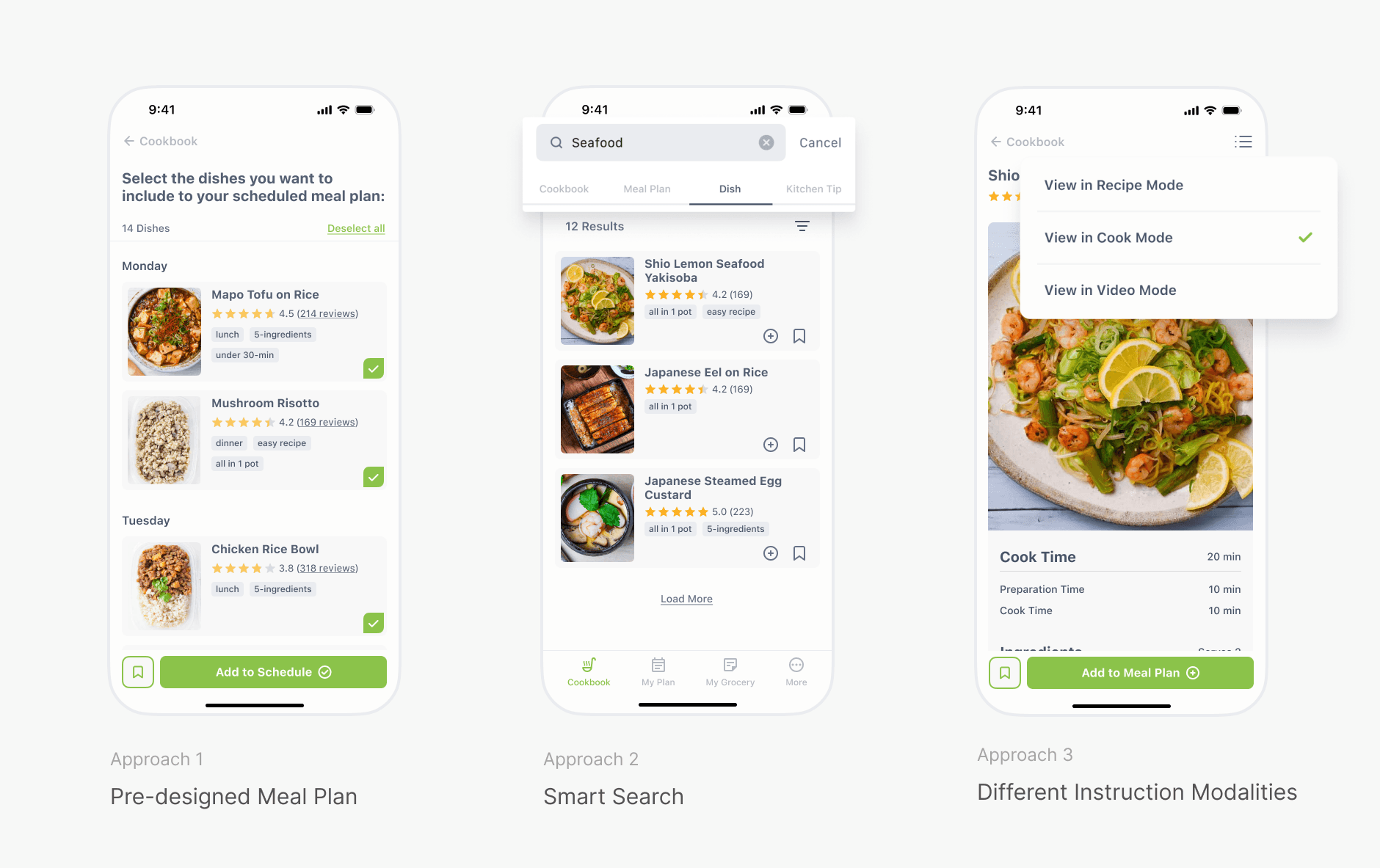
Takeaway
Why I chose this topic?
This project was part of my master's degree, I chose the topic because of my love for cooking, and my care for the environment. During interview phase, I recognized that many people—including myself—might not be a sustainability lifestyle advocate, but are looking to take on some responsibility to mitigate the environment from worsening.
What I would do, if I had more time…
For this project, I navigated through the limitations, including time constraints, and technical constraints. If I had more time and resources on this project, I would conduct summative usability studies to understand how the design improvements were implemented. In addition, the study would take place in person on a mobile device and perhaps ask participants to perform cooking simultaneously to better understand the usage under real situations.